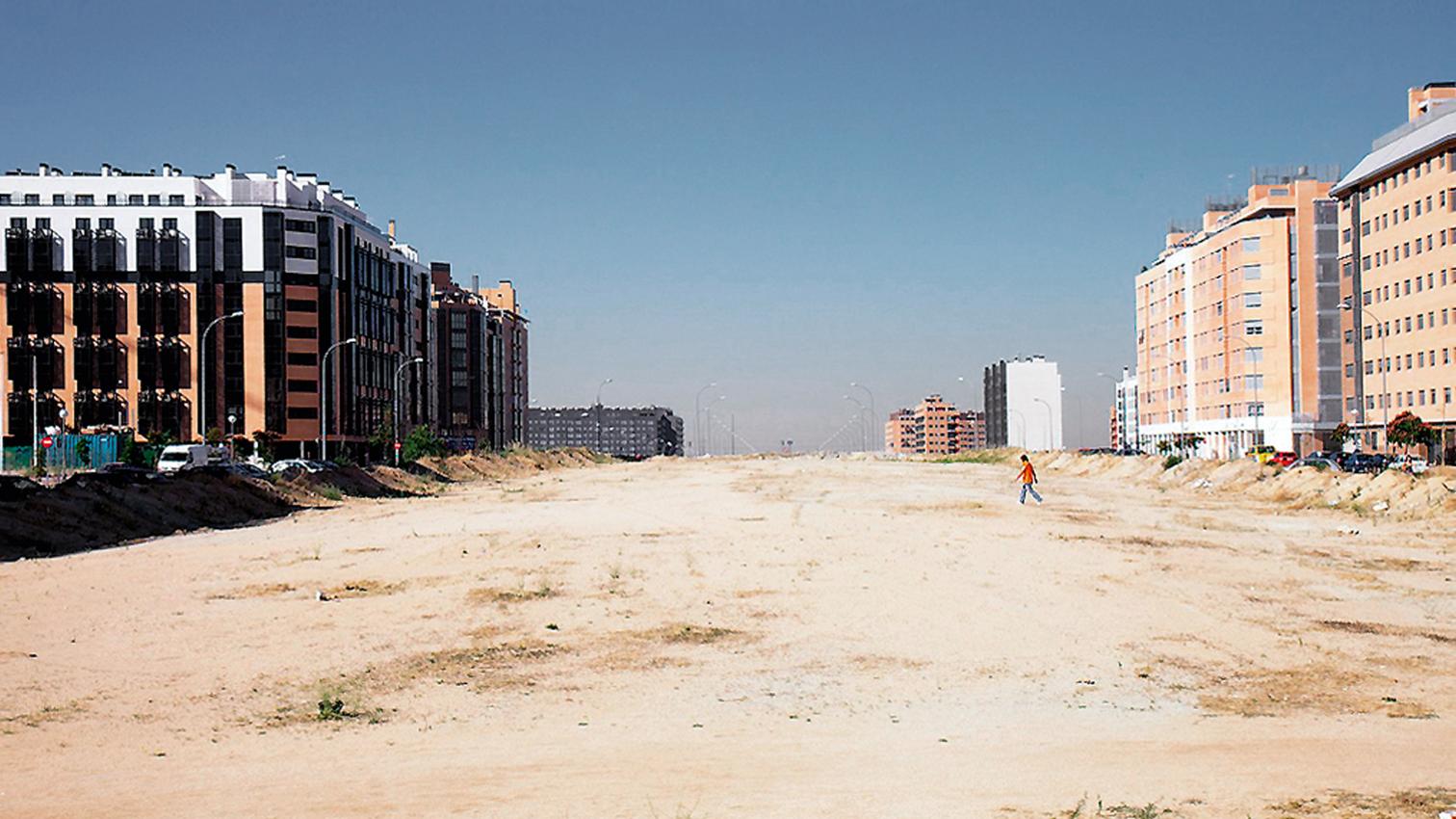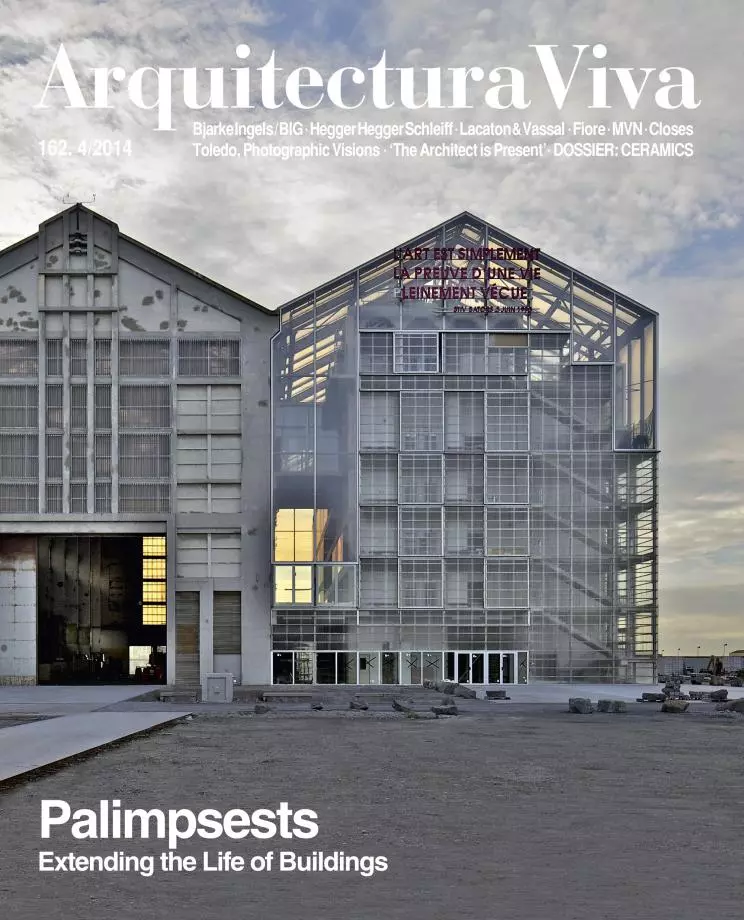
In ‘Specters of Marx’, Derrida upheld the political role of “a radical and interminable, infinite … critique … open to the absolute future of what is coming; that is, a necessary indeterminate, abstract, desert-like experience.” Whenever I read this passage, I think of the PAU of Vallecas.
Years ago, I was shown the entries in a competition for architecture students that had required submitting a model of an ideal city. There were many abstract forms, pale and very austere. It was all quite pretty, a bit like IKEA lamps. The only thing it occurred to me to ask was, “Where is the hospital? Is it public or private?”
Postmodern turbo-capitalism may be the first generalized application of an ‘indeterminate and desert-like’ historical experience. It has been deeply ingrained in our built environment. The magic of the market lies in letting us pretend that social links are spontaneous interactions. Some fanatics locked up in their economics faculties have managed to spread these false promises to all of our life in common. Their ideological success is to a large extent due to the intuitive connection that exists between these mercantile analogies and the myths of the city as a social space for personal reinvention that is compatible with anonymity.
A famous Spanish engineer once told me that it is much better to photograph bridges lit at night, when, with everything around hidden, the construction elements stand out. The fantasy of the self-regulated market works in a similar way. It is a way of dimming our cultural, familial, and political baggage so that only our immediate and transparent relationships are visible, the kind of activity we can clearly describe as choices. In the Bankia and Fadesa era, it is hard to accept the idea that business is the privileged medium of interactions of that kind. The utopia of connection and participation comes to our rescue.
We desperately look for social orthopedics that will bring on social processes automatically, with no need for deliberations and thus no chance of conflict. Like business but now without the mediation of money. The most consensual ones are communications technologies, of course. But urban planning and architecture have also played a key role. Cyberutopians understand Internet as the materialization of an expanded public sphere that regulates itself spontaneously. Its spatial version is the banal cosmopolitanism of speculative urbanism, dominated by the metaphors of transparency and fluidity. The forge of the postmodern social cement is an elegant surface of chrome steel and polished concrete politically sweetened with the rhetoric of public space as a place of encounter and reconciliation.
In 1979 Jello Biafra, the singer of the punk band Dead Kennedys, ran for mayor of San Francisco. One of his promises was to force bankers and businessmen to dress as clowns, an initiative with a long and honorable story behind it. In many traditional societies it was customary to ridicule spending excesses that were harmful to community life. It was an efficient way of introducing social friction in economic automatisms that, when fully oiled, have carcinogenic effects. We ought to ask something similar of cities. That they stop being the human and friendly face of liquid capitalism. That they stop hiding damaged lives with those fabricated by ‘high-frequency trading,’ the suffering buried in the foundations of those iconic, exquisitely intelligent, open, and sustainable buildings. We need a clown’s suit for capitalist cities. Political friction to help us turn them into specific places, lush and safe.





